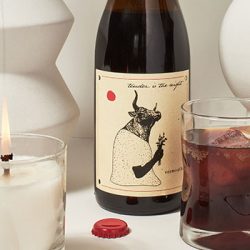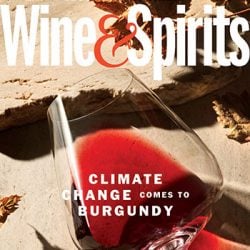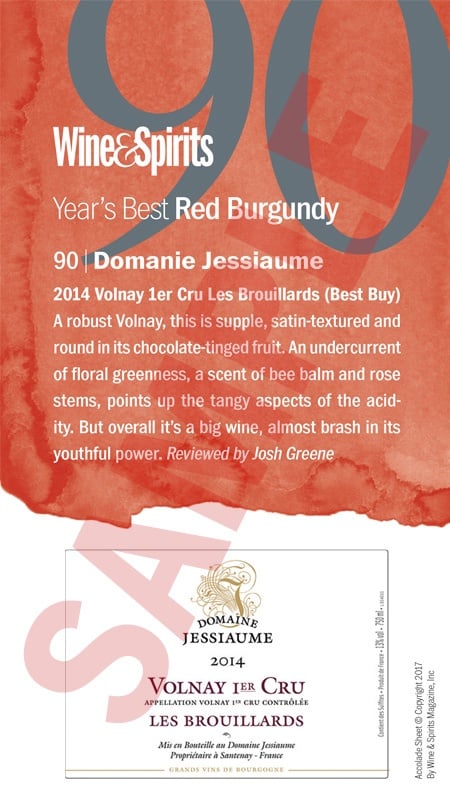In these unprecedented times, you might be surprised to find that the alcohol-free section of your local spirits shop is growing—or to find that the section exists at all. Several studies have shown that people have responded to the COVID-19 pandemic by drinking more. But, if soaring sales of nonalcoholic spirits are any measure, there are also many people drinking less. Makers of nonalcoholic spirits are reporting as much as 30 percent monthly growth.
Nonalc has been gaining steam since the 2015 launch of Seedlip. Made by macerating botanicals in neutral grain spirit and water, then distilling in copper pot stills to remove the alcohol, Seedlip was quickly embraced by craft cocktail bars and Michelin-starred restaurants eager to elevate their “no and low” offerings. Its Garden 108 expression, with its fresh flavors of summer peas and mint, could be mixed with citrus or soda for a sophisticated zero-proof cocktail or highball. Spice 94, bursting with cardamom, pairs nicely with ginger ale. Later this year, the brand intends to launch Æcorn in the US; the line of nonalcoholic aperitifs inspired by vermouth and amaro is already available in the UK.
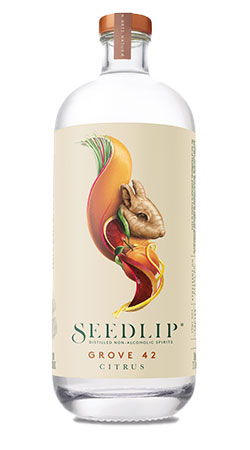

Seedlip was backed by Distill Ventures, a self-described “drinks accelerator” funded by Diageo, which eventually acquired the brand. Today, a quarter of DV’s portfolio is nonalcoholic. Proponents of nonalc spirits sometimes point to the explosive rise of nonalcoholic beer—sales were up 40 percent in 2020, by some measures. But many prefer a different comparison: meat and dairy alternatives. Consumers reaching for nonalc tend to be drinkers, like the non-vegan who drops a pack of Beyond Meat next to a tenderloin in the grocery cart. They’re driven by wellness, balance and, above all, choice. Pernod Ricard has a stake in Ceder’s, a botanical distillate from Sweden. Billing itself as an “alt-gin,” it hit US shelves last fall ($22/500ml; imported by Park Street, Miami, FL). When topped with tonic, its several expressions offer subtle flavor nuances that can struggle to compete with the pungency of quinine. But with no more than one part Ceder’s to three parts tonic, the cucumber-forward Crisp expression reads like a Hendrick’s Gin & Tonic. The Wild’s notes of clove and ginger tea call to mind elaborately garnished Spanish G&Ts.
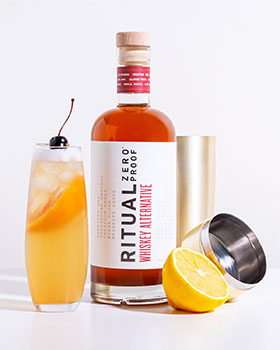

Much of the nonalc space is devoted to 1:1 spirit substitutes. Ritual, another brand backed by Diageo, launched last year, offering gin, tequila and whiskey substitutes. Named for what is, ostensibly, the most important aspect of cocktailing, it’s not distilled, but made using technologies that isolate essences and extracts, such as the esters in lime or the terpenes from an American oak barrel. The burn of alcohol is mimicked using a blend of botanicals, including capsaicin, the active component in chile peppers. Ritual’s Whiskey Alternative has the spicy, herbaceous aroma of rye and, with sugar and bitters, effectively mimics an Old Fashioned.
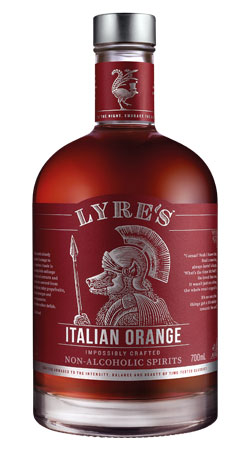

Spirit substitutes, poured neat, are unlikely to fool your palate. Most are designed to be mixed. The more creative and skilled the bartender, the better the result. Lyre’s has the most extensive 1:1 range—13 and counting—including rum, coffee liqueur and absinthe substitutes. Combine equal parts its Dry London (gin), Apéritif Rosso (sweet vermouth) and Italian Orange (Campari) for a non-intoxicating Negroni.
Certain brands elbowing their way into the nonalc space offer more than just a zero-proof alternative. Made with ingredients intended to relax or uplift, “functionals” straddle the worlds of wellness and cocktailing. Taking cues from Ayurvedic philosophy, Kin leans into bitter ingredients, like gentian. Associated with improved digestion, it also plays well in cocktails. Kin Spritz, a fizzy, bracingly bitter aperitif containing amino acids, caffeine and the brain-stimulating root rhodiola rosea works on its own or with a splash of tart juice. For some, it offers an instant jolt; others report a low-key buzz. Kin’s Dream Light ($39/500ml) is made with reishi mushroom, said to help the body manage stress; plus, a dose of melatonin for a good night’s rest. Serving suggestions include stirring in warm oat milk and honey.
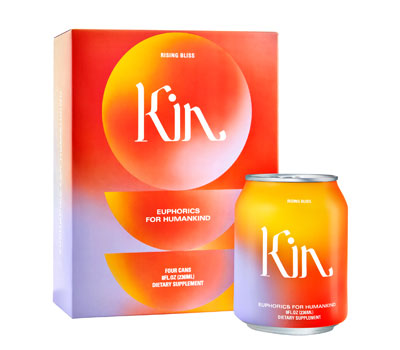

Addressing today’s pandemic-driven popularity of ready-to-drink cocktails, Curious Elixirs, in New York’s Hudson Valley, sells zero-proof prepared cocktails in brown glass bottles ($35/330ml 4-pack). The refreshing French 75-inspired No. 3 is infused with cucumber and ashwagandha, a root used to relieve stress and boost energy. No. 2 is a spicy pineapple-ginger concoction with damiana, a purported aphrodisiac. A world away from sugary mocktails, both deliver a subtle mellowing effect.
Just as we reimagined our diets with meatless burgers, nonalc spirits invite us to reimagine our drinks. Several alcohol-free bars already exist—Sans Bar in Austin, The Getaway in Brooklyn. For the sober or merely the sober curious, options abound.
Chantal Martineau is the author of How the Gringos Stole Tequila and co-author of Finding Mezcal. She lives in New York's Hudson Valley.
This story appears in the print issue of February 2021.
Like what you read? Subscribe today.


